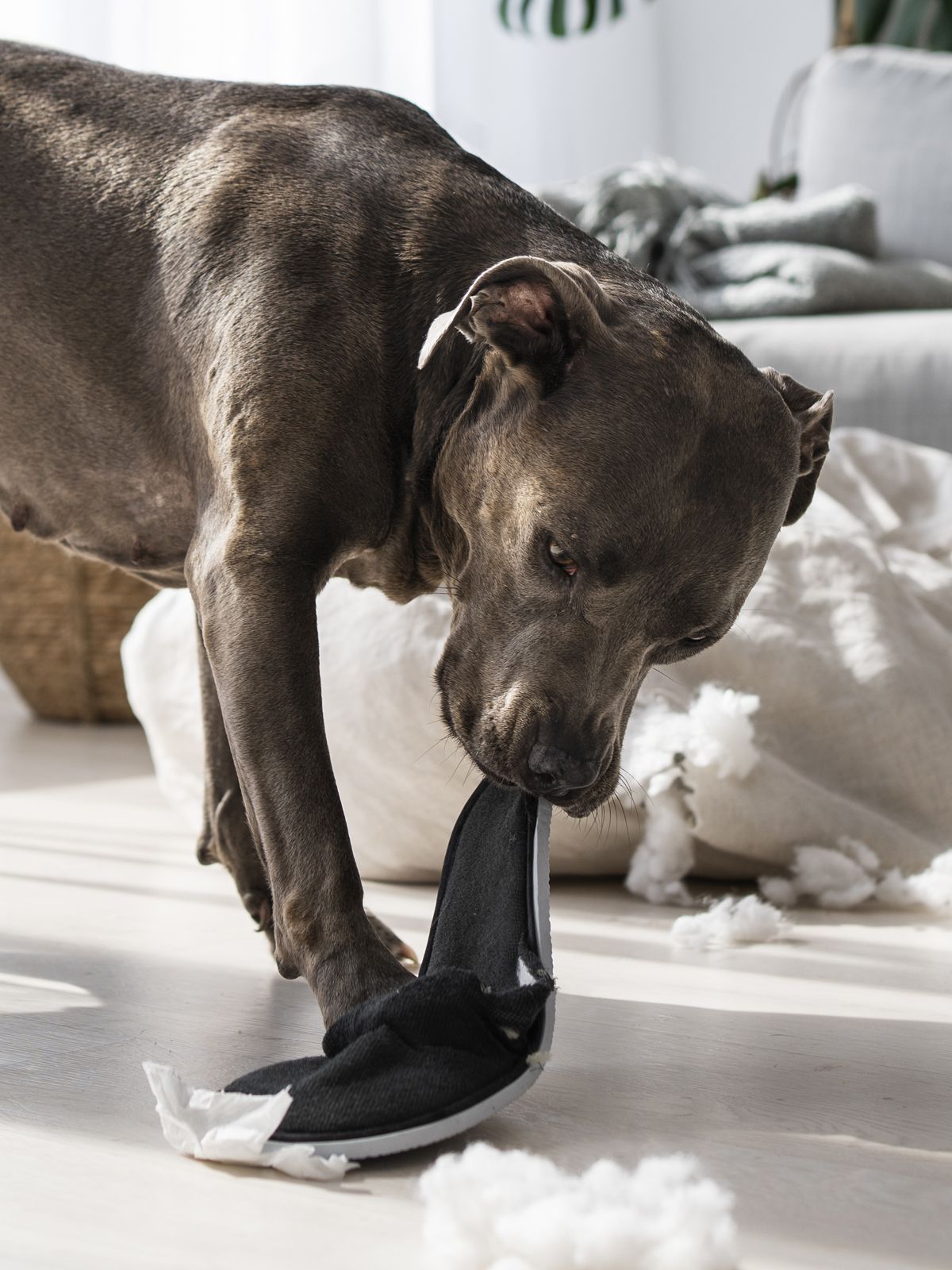
Destructive dogs
Dogs make amazing companions and family members, but occasionally, their destructive behaviour can be a source of frustration for pet owners. Whether it's chewing furniture, digging holes, or constant barking, these behaviours can be challenging to handle. Understanding the root causes and applying an effective strategy is fundamental in addressing destructive tendencies in dogs.
Firstly, it is important to understand that destructive behaviour in dogs often develops for various reasons, including boredom, anxiety, lack of exercise, or even medical issues. Dogs, particularly certain breeds or those lacking mental stimulation, may resort to destructive behaviour as a way of releasing pent-up energy or seeking attention.
Boredom is a significant factor behind destructive behaviour. Dogs, especially active breeds, require mental and physical stimulation to prevent boredom. When left alone for extended periods without adequate stimulation or exercise, they might resort to chewing on furniture, shoes, or other household items out of sheer boredom.
Anxiety and stress are other contributing factors. Dogs can experience separation anxiety when left alone, leading to destructive behaviour as a coping mechanism. Additionally, changes in routine, loud noises, or unfamiliar environments can trigger stress in some dogs, resulting in destructive tendencies as a result.
Medical issues cannot be overlooked. Pain or discomfort from dental problems, gastrointestinal issues, or other health concerns might drive a dog to chew or engage in other destructive behaviours as a way to relieve their discomfort.
To address destructive behaviour, seeking the advice of a qualified canine behaviourist is always advised. Whilst many of the above reasons can drive destructive behaviour, there are also a multitude of other behavioural reasons for dogs to engage in this behaviour, these can stem from environmental influences, or how a dog is being managed day to day by the owner.
Addressing any underlying medical issues is always advisable. A visit to the vet can rule out potential health problems contributing to the unwanted behaviour. Treating any physical discomfort or ailments can significantly reduce the dog's engagement in destructive behaviour.
Consistency and patience are key throughout the process of curbing destructive behaviour.
Seeking guidance from a professional dog trainer or behaviourist may be beneficial, especially in cases where the behaviour persists despite efforts to address it. They can offer personalized strategies and guidance tailored to the specific needs of the dog and the situation.
Back to Balance Canine Behaviourist can help you to firstly, understand the why, and then provide you the how, when it comes to resolving your own dogs problem with destructive behaviour. To book a one to one session, get in touch via the contact page on the website.
Azz Rainey has worked with a large number of dog behavioural issues over the years, including, separation anxiety, destructive behaviour, aggression, reactivity, high prey drive, extreme fear and resource guarding.
Working in Oxfordshire, Gloucester, Swindon and Evesham as well as the surrounding areas to provide one to one sessions with dog owners in their own home
- Hits: 574